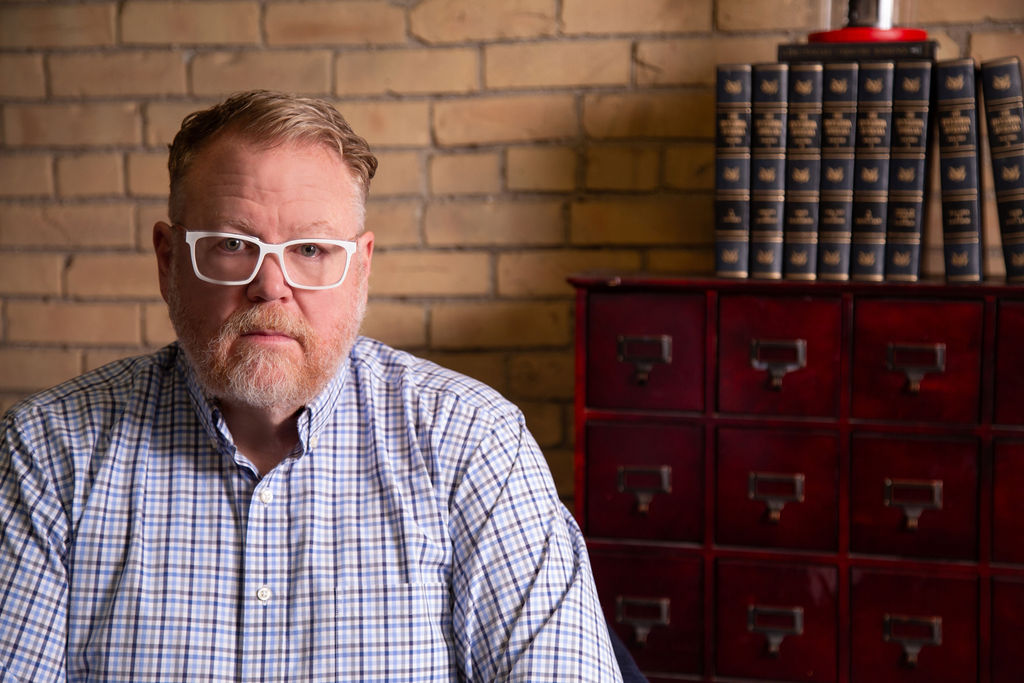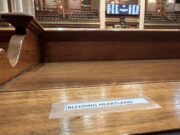Salt Lake City, UT — A journalist with 25 years of experience covering Utah politics is fighting back after being denied press credentials under a newly revised policy that appears designed to silence independent reporting.
Today, Institute for Free Speech attorneys and local counsel Bobby Harrington of Kunzler Bean & Adamson, PC, filed a federal lawsuit on behalf of Bryan Schott and Utah Political Watch (UPW) against Utah legislative officials who denied Schott’s application for press credentials. The denial came after the Utah Legislature changed its credentialing rules in November 2024 to exclude “blogs, independent media outlets or freelance media,” a change made just weeks after Schott inquired about obtaining credentials for the 2025 session.
Schott, a recipient of the National Press Foundation’s Election Journalism Fellowship and Utah’s Best Newspaper Reporter award, founded UPW in October of 2024 after leaving The Salt Lake Tribune. UPW has quickly become an influential source of state political coverage, with approximately 1,000 newsletter subscribers and thousands of social media followers. Its stories regularly receive thousands of views, and its weekly podcast averages 1,500 downloads per episode.
Despite receiving press credentials every year they were offered since at least 2013, Schott was denied access for the 2025 legislative session. The denial followed Schott’s hard-hitting coverage of Senate President Stuart Adams regarding a complaint filed against Adams about the adequacy of his campaign finance disclosures. Adams immediately criticized Schott on social media, labeling him a “former media member” and questioning his journalistic integrity.
That same day, defendant Utah Senate Deputy Chief of Staff and Media Liaison Designee Aundrea Peterson warned Schott in text messages about the credential review process while dismissing him as “someone who claims to be a journalist.” She further told him, “You aren’t a journalist,” and accused him of a “lack of journalistic integrity” when he asked what ethical standards she claimed he had not met.
The impact of the refusal to grant credentials is ongoing. Schott has already been blocked from covering key events, including the House GOP’s legislative priorities announcement and the governor’s monthly press conference. He has also now missed attending the first two days of the session. Additionally, without credentials, he cannot attend daily leadership meetings, participate in Friday media availabilities with the Speaker, or access areas of the Capitol reserved for press coverage.
The lawsuit challenges the credential policy as unconstitutionally vague and discriminatory. In particular, the new rules fail to define key terms like “independent” and “reputable,” allowing officials to arbitrarily decide who qualifies as legitimate media. Without swift court intervention, Schott will continue to be excluded from the legislative session, which began on January 21st, hampering his ability to report on matters of public interest.
“The First Amendment prohibits government officials from excluding journalists based on arbitrary reasons like independent status, because nebulous standards make it easier to exclude journalists based on tough coverage or the journalist’s viewpoint,” said Institute for Free Speech Senior Attorney Charles “Chip” Miller. “The revised credentialing policy gives officials unbridled discretion to deny credentials to reporters whose coverage they dislike. And to threaten others with similar banishment for not toeing the government’s line.”
“For over two decades, I’ve worked to hold policymakers accountable and to keep Utahns informed about their state government,” explained Bryan Schott. “Now, legislative officials are trying to shut me out—and shut me up—simply because I am once again an independent journalist, as I was until 2020. There is no legitimate reason to exclude me now.”
“This isn’t just about me. It’s about protecting press freedom for all reporters who work outside traditional media organizations,” Schott concluded.
To read the complaint in Utah Political Watch, et al. v. Musselman, et al., click here. To visit our case page, which includes photos of the client for media use, click here.














